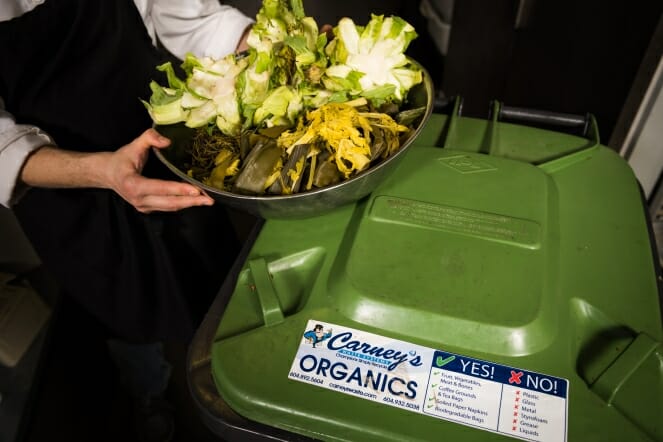Plan will also work to better distribute food to those in need
A new Sea to Sky Food Recovery Strategy and Action Plan was presented to Whistler Council at the regular meeting on Tuesday, October 5, 2021. The strategy has the bold goal of maximizing the recovery and distribution of food in the Sea to Sky corridor, while minimizing food waste.
The plan outlines five high-level strategies needed to address the biggest opportunities/needs for food recovery, redistribution, and waste diversion. These include:
- Secure additional recovered food donations to meet food bank and program needs.
- Remove barriers to accessing food programs.
- Work with remote communities on food recovery and redistribution as desired and requested.
- Reduce and divert food waste that cannot be donated to food banks and programs.
- Build overall capacity related to food waste and recovery.
“Food security is a fundamental need, and the COVID-19 pandemic has demonstrated the absolutely crucial role food banks and programs play in Whistler, and across the corridor, in helping people in need access food,” said Whistler Mayor Jack Crompton. “I am hopeful that with this plan in hand, we can ensure less food goes into the landfill and more food goes towards those who need it.”
The plan was prepared by the Whistler Centre for Sustainability on behalf of the Resort Municipality of Whistler (RMOW). A task force comprising 17 individuals from food distribution organizations, local governments, and the food industry (hotels, restaurants, and grocers) across the corridor further provided input.
Access to food impacting all communities in the corridor
Whistler Community Services Society, Squamish Helping Hands Society, Lil’wat Nation, Southern St’at’imc Health Society, and Sea to Sky Community Services all run food banks and food programs in the Sea to Sky Corridor to serve clients who face food access challenges.
While regional grocers, restaurants and hotels do provide food to these banks and programs, a significant amount of food waste still exists, with about 30 per cent of Whistler’s waste stream estimated to be food waste.
Meanwhile, the demand for food bank services often exceeds the ability to collect and distribute food. This situation has been exacerbated with the COVID-19 pandemic, where an increasing number of people began accessing these services.
The majority of recoverable food is generated in Whistler through grocers, restaurants and hotels, but a significant amount is also generated by Squamish and Pemberton grocers and restaurants, as well as by Pemberton farmers.
Community engagement key to strategy development
The task force created to develop the Food Recovery Plan included representatives from many organizations across the Sea to Sky Corridor.
Specific organizations involved were: the RMOW, Crystal Lodge, Nesters Grocery Store, Squamish Helping Hands Society, Southern Stl’atl’imx Health Society, Whistler Community Services Society, District of Squamish, Restaurant Association of Whistler, Squamish Food Policy Council, Save on Foods Squamish, Village of Pemberton, Pemberton Food Bank, Squamish Lillooet Regional District, School District 48, Lil’wat Nation and Pemberton Farmers’ Institute.
The task force met four times, as well as provided feedback via emails.
Meanwhile, interviews were conducted with all food distribution organizations in the corridor to better understand their needs and practices. A survey was conducted with hotels, grocers and restaurants, to which 37 responses were received. This was followed up with 11 interviews.
In addition, clients of the Squamish, Whistler and Pemberton food banks were surveyed between June and August 2021 to gather information related to their needs, the type of food missing, and comfort levels and transportation challenges accessing the locations. In total, close to 400 survey responses were received.
Next steps
With the creation of the Food Recovery Plan, the RMOW will support the implementation of actions. These include supporting educational initiatives, which also align with the RMOW’s recently endorsed Zero Waste Action Plan.
View the full strategy – including the list of strategies and associated actions – here: the Sea to Sky Food Recovery Strategy and Action Plan.

